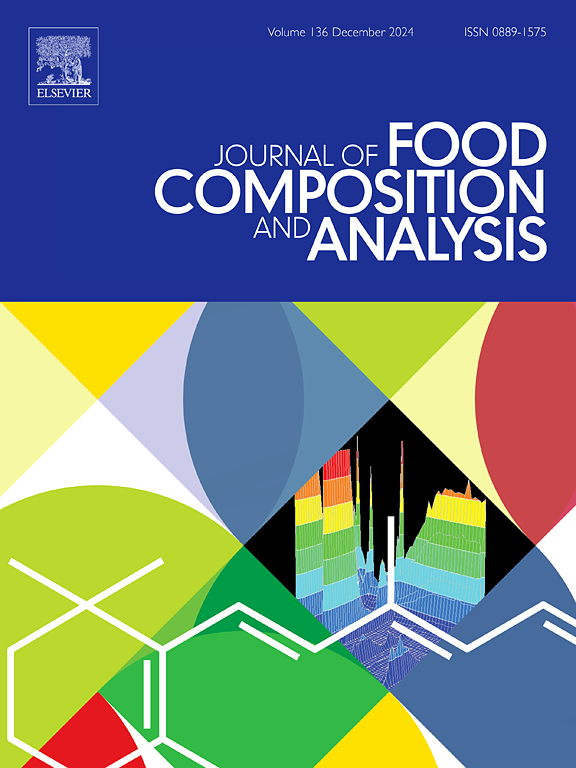Assessment of physicochemical attributes and variation in mass-volume of Himalayan pears: Computer vision-based modeling
IF 4
2区 农林科学
Q2 CHEMISTRY, APPLIED
引用次数: 0
Abstract
The current study attempts to examine the physicochemical properties of Himalayan pears and envision the relationship between mass and volume with various physical properties. These properties are measured using image processing techniques at different storage days (1st day, 4th day, 7th day, 10th day, and 13th day). The study employs both single and multivariable regression models, including linear, quadratic, rational, and exponential models to establish predictive relationships. Among the single variable models, the length-based linear and rational models demonstrated exceptional suitability for envisioning the mass and volume of pears, achieving higher R2 values of 0.92 and 0.90, respectively. For mass and volume prediction considering combined physical properties, the rational and exponential models exhibited the best fit with higher R2 values of 0.94 and 0.91, accompanied by low RMSE values of 0.217 and 0.141. Consequently, the established relationship between the mass and volume of Himalayan pears with its physical attributes contributes to the development of a faster, more authentic, and accurate grading system.
评估喜马拉雅梨的理化属性和质量体积变化:基于计算机视觉的建模
本研究试图检测喜马拉雅梨的理化特性,并设想质量和体积与各种物理特性之间的关系。这些特性是在不同贮藏天数(第 1 天、第 4 天、第 7 天、第 10 天和第 13 天)使用图像处理技术测量的。研究采用了单变量和多变量回归模型,包括线性模型、二次模型、有理模型和指数模型来建立预测关系。在单变量模型中,基于长度的线性模型和有理模型特别适合预测梨的质量和体积,R2 值分别达到 0.92 和 0.90。对于综合物理性质的质量和体积预测,合理模型和指数模型的拟合效果最佳,R2 值分别为 0.94 和 0.91,RMSE 值分别为 0.217 和 0.141。因此,喜马拉雅梨的质量和体积与其物理属性之间的既定关系有助于开发更快、更真实、更准确的分级系统。
本文章由计算机程序翻译,如有差异,请以英文原文为准。
求助全文
约1分钟内获得全文
求助全文
来源期刊

Journal of Food Composition and Analysis
工程技术-食品科技
CiteScore
6.20
自引率
11.60%
发文量
601
审稿时长
53 days
期刊介绍:
The Journal of Food Composition and Analysis publishes manuscripts on scientific aspects of data on the chemical composition of human foods, with particular emphasis on actual data on composition of foods; analytical methods; studies on the manipulation, storage, distribution and use of food composition data; and studies on the statistics, use and distribution of such data and data systems. The Journal''s basis is nutrient composition, with increasing emphasis on bioactive non-nutrient and anti-nutrient components. Papers must provide sufficient description of the food samples, analytical methods, quality control procedures and statistical treatments of the data to permit the end users of the food composition data to evaluate the appropriateness of such data in their projects.
The Journal does not publish papers on: microbiological compounds; sensory quality; aromatics/volatiles in food and wine; essential oils; organoleptic characteristics of food; physical properties; or clinical papers and pharmacology-related papers.
 求助内容:
求助内容: 应助结果提醒方式:
应助结果提醒方式:


